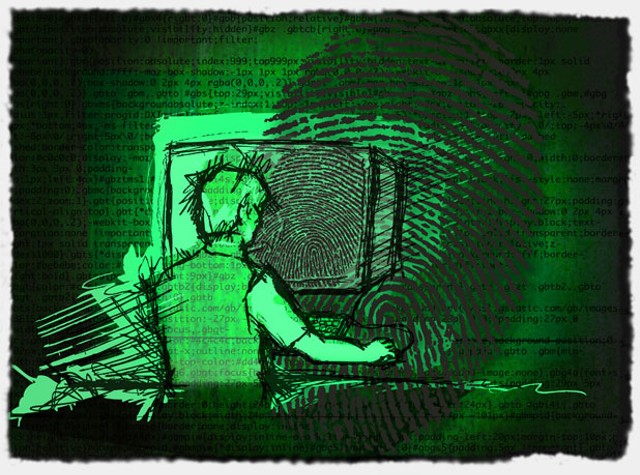Published February 20, 2013 at 10:01 a.m.
A recent spike in arrests for possession of child pornography suggests Vermont is gaining ground in the battle against this cyber crime. Since December, state and federal prosecutors have announced the felony arrests or convictions of at least eight men accused of possessing lewd, graphic and frequently violent images involving sex with children.
Now police and prosecutors who handle these cases are urging lawmakers to close a loophole in state law that allows suspects to escape prosecution if they viewed those images over the internet but didn’t actually download — and thus “possess” — them.
Under federal law it’s already illegal to view pornographic material involving anyone under the age of 18. But Vermont is one of 21 states that has not outlawed it in state statute. As a result, state prosecutors say it’s more difficult for them to secure child-porn convictions than it is for their federal counterparts.
A bill coming up for discussion this week in the Senate Judiciary Committee aims to change that. S.19, sponsored by the committee’s chairman, Sen. Dick Sears (D-Bennington), would make it illegal to “access with intent to view” photos, videos or other depictions of sexual or lewd acts involving kids under 16.
“The problem is that our current law is based on how people used to view child pornography, which is a magazine they would hold in their hand,” says Christina Rainville, chief deputy state’s attorney in Bennington County. “It doesn’t reflect the current reality of how child pornography is looked at today, which is by surfing the web.”
The Bennington County state’s attorney’s office was at the center of a high-profile child pornography investigation last year involving John Dockum, a fifth-grade teacher in Bennington who was charged with possession of child pornography on his school-issued computer. Dockum consistently maintained his innocence and his attorney claimed he never viewed any of the 17 graphic images involving sex acts with children that were discovered in his laptop’s temporary cache, or others found by his wife on Dockum’s home computer. He never downloaded the images.
Prosecutors eventually dropped the charges against Dockum, who was fired from his teaching job. His lawyer accused investigators of damaging his client’s reputation by “recklessly misrepresenting crucial facts.”
But Bennington County State’s Attorney Erica Marthage didn’t exactly apologize to Dockum or rush to clear his name. Rather, she said the case simply highlighted the difficulty of prosecuting child-porn cases under current state law — and vowed to work with legislators to change it.
The Dockum defense was similar to one that led the New York Court of Appeals to overturn a conviction on May 8, 2012. James D. Kent, a former assistant professor at Marist College in Poughkeepsie, N.Y., went to jail in 2009 for possessing more than 100 illegal images found in his computer’s web cache. But because those images were never downloaded to Kent’s hard drive, New York’s highest court ruled that they didn’t legally constitute “possession” on his part.
Under the proposed Vermont law, that behavior would be illegal. But Sears says his bill tries to distinguish between those who didn’t know what they were doing and ended up with child porn on their computer, then made a good-faith effort to delete it — as Dockum claimed he did — from those who deliberately sought it out.
“I think all of us have found ourselves on websites we had no idea how we got there,” Sears says. “And sometimes they’re less than desirable.”
For years, the Vermont Internet Crimes Against Children Task Force has had computer software that enables police to locate Vermonters who use peer-to-peer file-sharing networks to download and swap child pornography, according to Attorney General Bill Sorrell. In the last few months, the state has stepped up its efforts to investigate and prosecute such crimes.
At any given time, says Sorrell, ICAC software can identify at least 200 different IP addresses in Vermont that have recently accessed and downloaded known child-porn files that have been previously identified by law enforcement and were provided to the National Center for Missing and Exploited Children. Each file is identified by a “hash value,” or unique digital footprint, and includes a brief description of what’s in it.
But that doesn’t mean busting child-porn consumers is easy. “Those tools are great, but all they do is point us in a direction,” says Burlington police Lt. Kristian Carlson, ICAC’s commander. From there, old-fashioned detective work kicks in. Investigators must hit the streets to determine exactly who is using those IP addresses. That can be difficult, Carlson explains, especially when several people use the same IP address or the files are accessed via a public computer or unsecured wireless network.
Moreover, Carlson adds that because the police departments that staff ICAC have limited resources, most investigations were done on a “catch-as-catch-can” basis, primarily by police officers from Burlington and South Burlington.
“For a while these investigations were few and far between,” Carlson says. “At the end of the day, it all comes down to staffing, which has been an issue for some time now.”
During the 2012 legislative session, however, Sorrell convinced the legislature to increase his budget by $200,000 to pay for two new criminal investigators in his office to work almost exclusively on child-porn cases. By late last year, both a full-time and part-time investigator had been hired and trained.
Their efforts are now bearing fruit: Last week, Kevin Gallagher and David Faulkner, both of Burlington, were arrested on felony child pornography charges; both pleaded not guilty. Those cases followed the December arrests of Homer Smith of Northfield on five felony counts of possession of child porn, as well as the guilty plea of Glenn Canaday, also of Burlington, on three misdemeanor counts.
The increased focus on child pornography cases can take a toll on investigators — not only for technical reasons but also for emotional ones. Police and prosecutors say they’re now seeing a rise in both the number and severity of violent and sadistic images involving sex acts with children, some as young as infants.
“This is really difficult stuff,” Carlson notes. “In all of my years in law enforcement, I can’t think of anything more horrific than some of things I’ve had to see as a result of this work.”
Because investigators and forensic examiners must describe in legal affidavits exactly what they’ve unearthed, they still “have to put eyes on” previously known and identified files to confirm what’s in them. Oftentimes, Carlson says, that can involve hundreds, if not thousands, of images, including audio, video and text files. “And unfortunately, there seems to be no bounds for the depravity of these offenders.”
For this reason, Vermont’s ICAC became the first such task force in the country to establish a mental-health wellness program for its personnel. That program, which the U.S. Department of Justice now holds up as a national model, has a mental-health professional “embedded” with the team, who tries to identify problems and educate investigators’ family members about what’s considered a “normal” versus “abnormal” response to continually viewing sexually graphic and violent imagery.
Carlson, who’s aware of Sears’ legislation, says he’s heard from people concerned that the bill could result in innocent people inadvertently being arrested and charged because they “accidentally” downloaded a few illegal images. From his point of view, that’s not a legitimate concern.
“If I have a case where someone has 10,000 images of adult pornography and three images of child pornography, odds are we’re not going to charge possession of child pornography because this person is not someone who is actively seeking this stuff out,” Carlson says. “Right now there are much bigger fish to fry.”
In fact, all the police officers and prosecutors interviewed for this story say they won’t move forward on a case involving child pornography if there’s any doubt about the age of the children portrayed. Echoing that, U.S. Attorney Tristram Coffin says the cases his office pursues are the worst offenders — those involving dozens, if not hundreds or thousands, of images of children, nearly all of whom are prepubescent. Under federal law, Coffin’s office has authority to prosecute people for merely viewing child porn, but in practice, charges are only brought against those who possess it.
Oftentimes, child porn investigations lead authorities to more serious, hands-on offenses. Rainville, who also prosecutes child sex abuse cases in Bennington County, says that in her experience, men caught sexually abusing children nearly always have child pornography at home — a trend consistent with national studies on sex offenders in federal custody.
As a result, Rainville says that when someone gets arrested and charged with child sex abuse in Bennington County, investigators will now obtain a search warrant to look for child pornography, too.
How often does it turn up? “We’ve found it every time we’ve looked,” she says.
Even more disturbing, Rainville says, of all the child-porn files seized by police in Bennington County since 2007 when she started there, none included images previously identified by law enforcement or the National Center for Missing and Exploited Children.
“It’s all new, and it’s all abuse happening today somewhere in the world and being downloaded,” she adds. “A lot of people think they’re going to get rich with child porn.”
If there’s any good news to report, it’s this: According to both Sorrell and Coffin, rarely these cases go to a jury. Virtually all the men arrested on child pornography charges — and no one interviewed for this story could recall a woman ever being charged in Vermont — plead guilty before the case ever goes to trial.
Of course, that could change if and when the state lowers the bar for possession.
More By This Author
Speaking of...
-

Best rock artist or group
Aug 1, 2018 -

Opinion: Should Rape Victims Get Custody Rights?
Feb 26, 2014 -

At the Junction of State and Federal Law, I-91 Checkpoint Becomes Site of Legal Collision
Feb 5, 2014 -

Maple Makeover? Vermonters Discover a New Sugaring Technique
Feb 5, 2014 -

Disharmony on Prospect Street: A Dispute Between Neighbors Strikes a Sour Note
Feb 5, 2014 - More »
Comments
Comments are closed.
From 2014-2020, Seven Days allowed readers to comment on all stories posted on our website. While we've appreciated the suggestions and insights, right now Seven Days is prioritizing our core mission — producing high-quality, responsible local journalism — over moderating online debates between readers.
To criticize, correct or praise our reporting, please send us a letter to the editor or send us a tip. We’ll check it out and report the results.
Online comments may return when we have better tech tools for managing them. Thanks for reading.













































